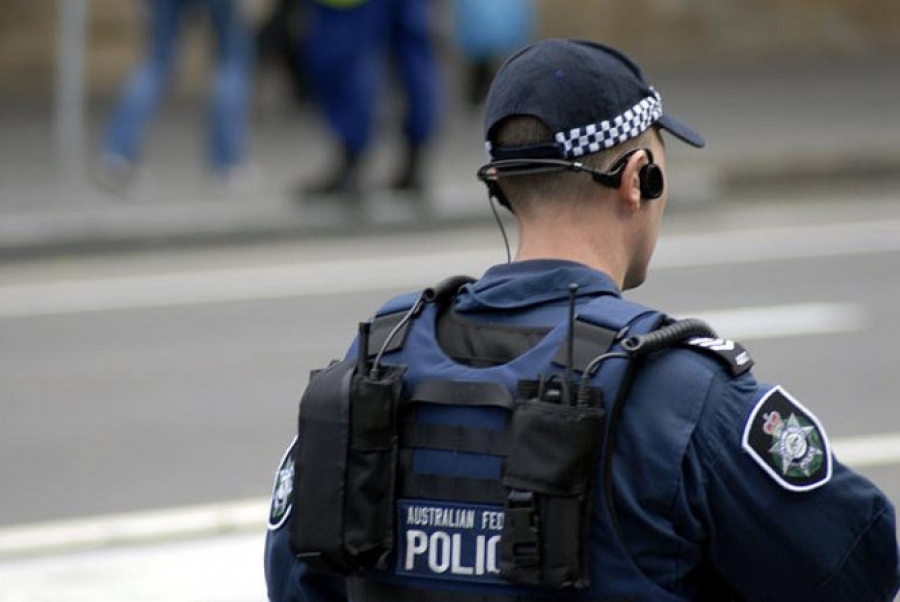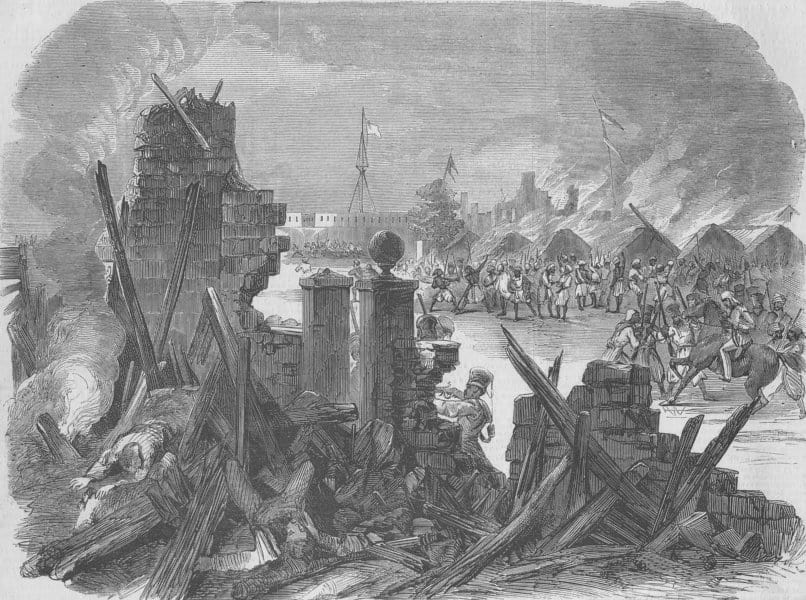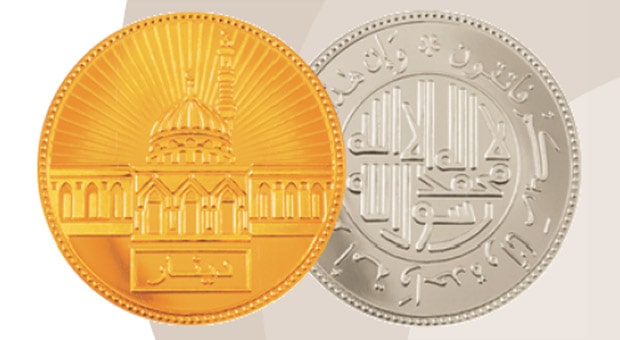As the Abbott Government moves forward with a new set of anti-terror law amendments, understanding these requires knowledge of the anti-terror law regime as it has developed over the last decade and as it currently stands. The following – a chapter from the ‘Government Intervention in the Muslim Community’ report released by Hizb ut-Tahrir Australia in November 2013 – provides a summary of the same.
The anti-terrorism laws form part of the ‘hard-power’ measures of Australia’s National Security Strategy. These draconian laws are aimed at intimidating the Muslim community and making it possible to throw the full force of the law against Muslims with ideas deemed ‘extreme’ by lowering legal standards of evidence and conviction.
Outline of laws
As at 11 Sep 2001, Australia had more than thirty federal acts of legislation under which terrorist acts could be handled, as well as much relevant state legislation. Many regulatory and legislative amendments were made to these in the period from 2001-2003, leading up to the first new legislation in the form of the Anti-Terrorism Bill 2004.
This new bill provided for an extension of the fixed investigation period for suspected terrorism offences from 4 hours to 24 hours and allowed law enforcement agencies to suspend or delay questioning of a suspect to make relevant overseas inquiries. Its two subsequent amendments allowed government to proscribe organisations as terrorist and made it an offence to be a member of, associate with, provide training to or receive training from, any such proscribed organisation.
It also gave the AFP and ASIO the power to request an order for the surrender of passports and made decisions of the Attorney-General on security grounds exempt from judicial review.
This new legislation had real potential for harsh implementation of powers and unfair targeting of minority groups, Muslims in particular. Yet it was passed without presentation of evidence to support the claim that these new provisions and powers were needed, without any real debate and without any consultation with stakeholders.
This was followed, in the following year, with even more draconian legislation with the Anti-Terrorism Act 2005, passed in December 2005. This act provided for control orders that allow the police to go before a closed court and ask for restrictions to be placed on someone who ‘poses a terrorist risk’. Restrictions include restricting freedom of movement; freedom of association (including one’s lawyer); banning the performing of named actions and owning named items, including actions and things necessary to earn a living; unlimited requirements to be, or not to be, at specified places at any or all times of the day and week; wear a tracking device; and including encouragement to submit to re-education.
It also made it a crime, punishable by life imprisonment, to recklessly provide funds to a potential terrorist (‘financial terrorism’), whereby it is not necessary that the culprit know the receiver is a terrorist, only that the person is reckless about the possibility that they might be. This resulted in increased surveillance of Muslim charities and random raids and searches of Muslim charities in Sydney in 2008, resulting in no charges or convictions.
It also provided for preventative detention: short-term detention for individuals, without evidence or criminal involvement, for up to 14 days. This was done notwithstanding that such a law was in contravention of the separation of powers doctrine and no clarification was presented as to what was sought to be prevented by these powers given that the AFP already possessed powers to arrest persons suspected on reasonable grounds for committing an offence.
It included tougher ASIO powers such as search warrants being valid for 3 months instead of only 28 days, and introduced new ‘sedition’ laws, whereby it was a criminal offence for someone to incite violence against the community “in support of Australia’s enemies” or “urging disaffection” of the sovereign, the constitution, the government, the law. Measures for greater protection of free speech and greater scrutiny of the law’s application, proposed at different stages by individual members of the Government and Opposition were not accommodated.
It also provided for stop, question and search powers, extending police powers to stop anyone in the street, search them and ask them questions when police suspect a person might be about to commit a terrorist offence.
These two pieces of legislation were passed under the Howard Coalition Government, but with support from Labor. When Labor came to power in 2007 the laws remained as they were until 2010 when they underwent little more than cosmetic changes under the National Security Legislation Amendment Act 2010. In fact, some provisions were expanded further.
This act expanded the definition of a ‘terrorist act’ in the Criminal Code to include psychological harm; provided police with new emergency powers to enter and search premises without a warrant where it is suspected that there is material relevant to a terrorism offence and there is a threat to public health or safety; extended the time available for police to re-enter a premises under a search warrant from one hour to 12 hours in emergency circumstances; introduced a new ‘terrorism hoax offence’, punishable by up to 10 years imprisonment; renamed the offence of sedition to ‘urging violence’ and expanding its provisions to include urging force or violence against an individual, not just a group, and including ‘national origin’, as well as race, religion, nationality or political opinion as a reason for urging violence.
In terms of ‘safeguards’ it established the National Security Legislation Monitor, modeled on Britain’s Independent Reviewer of Terrorism Laws, as an independent body with the task to consider whether legislation adequately protects public safety, without reducing public freedoms.
Critique of laws
The anti-terror laws have been subject to strong critique from former chief justices of the High Court and former prime ministers[1], peak law bodies[2], lawyers[3], human rights bodies, and many others individuals and groups. All the critique fell on deaf ears. Even Government reviews, of which there have been many, have advised repeal of many of the more controversial aspects of the legislations, but these too have all been ignored.
Most recently, the COAG Counter-Terrorism Review of Counter-Terrorism Laws and the Independent National Security Legislation Monitor second annual report were both tabled in Federal Parliament in May 2013. Both concluded that various aspects of the anti-terrorism legislations need repeal or change. The COAG review advised repeal of the offence of associating with a member of a terrorist organisation, narrowing the criteria for the banning of a terrorist organisation. The NSL Monitor report advised repeal of ASIO detention warrants, tightening the process for issue of ASIO questioning warrants, and repeal of the control order regime. The Government again ignored all of this.
On its part, the argument of the Government has been that the convictions achieved under the anti-terror laws justify these laws. This is a disingenuous and circular argument, for the convictions are only made possible due to the unjust laws. The vast majority of the 23 convictions made thus far, over the period of a decade, have been made on the flimsiest of grounds. The acts deemed ‘terrorist’ were only done so because the laws expand the meaning of ‘terrorism’ and lower the standards of evidence and conviction to such an extent that otherwise suspicious and irresponsible conduct at best and criminal conduct at worst is deemed ‘terrorist’.
Indeed, such convictions were only possible courtesy of the exceptionally low legal standards delivered by the draconian laws. Standards that have done away with the requirement of a guilty act as well as a guilty mind. Standards that have done away with the need for solid evidence and ability to carry out a particular crime on part of the accused. Standards that suffice with mere ‘evil intentions’ and bits and pieces of circumstantial evidence used to prove mere intent to plan some undefined act at some undefined point in the future, with or without actually ability on part of the accused to carry it out.
In February 2010, for instance, five Sydney Muslim men were sentenced to harsh sentences of up to 28 years jail by the Supreme Court.[4] This was in spite of the fact that there was no direct evidence of any planned attack, no specific target, and no intent to kill could be established. The mere possibility of life being taken was deemed sufficient to pronounce them guilty, taking into consideration the ‘extreme’ views they held. Such a conviction was only possible due to the lowering of legal standards of conviction.
In the Holsworthy barracks case, three Melbourne Muslims were sentenced in December 2011 to 18 years jail even though they were not found guilty of committing any particular act, or even preparing for the commission of any particular act. Rather they were found guilty of ‘extremist beliefs’ and, based on circumstantial evidence, of conspiring to plan an act, that is, having the mere intention to plan an act – an act which, by the admission of the court, they had no proper ability to carry out.
Targeting Muslims
Although the anti-terror legislation is couched in neutral language, it is quite evident that it targets Muslims, and is one of the clear extraordinary policies specifically against the Muslim community. It should be plain to any impartial observer that this entire anti-terror legislation regime serves a political agenda, not merely a security one.
John Cobb, then Minister for Multicultural Affairs, was the first Howard Government minister to link the anti-terrorism laws to the Muslim community. Addressing a summit at the Melbourne Town Hall entitled Muslims in Australia — National Security and Harmony Summit in September 2005 he about why tougher measures were being introduced,
“…it is to do with the current terrorism and the fact that people who are practising it profess to be Muslims…They are aimed at the criminals and the lunatics in the world and it doesn’t matter what they call themselves, that is all they are.”[5]
That the anti-terror laws were introduced to target Muslims primarily is also highlighted by the fact that just days before the legislation of 2005 was introduced the Government held a special briefing with the Muslim Community Reference Group at the Reference Group and Sub-Groups’ meeting on 30 November 2005.[6]
The anti-terror laws have been introduced following terrorist attacks overseas which have been used to fan emotions of fear and anger in the community. The Anti-Terrorism Act 2005 was no different and needed justification in order to allow the proposed legislation to be passed. The AFP provided this justification, behind closed doors, by talking up impending threats which allowed the legislation to be rushed through parliament with little opposition or oversight.
“Well look, one of the reasons that these laws are proceeding is because the competent advisers to the Commonwealth – and that includes our security agency and also the Australian Federal Police – outlined the nature of the risk. A lot of that material is not in the public arena, but it was certainly outlined to them. They appreciated the sense of urgency surrounding these matters.” – Phillip Ruddock, Federal Attorney-General, Oct 2005.[7]
“The reason that we have passed it through the House of Representatives is that we have been told by our law-enforcement agencies…that passing this law, making this change, would enhance the capacity of the law-enforcement agencies to deal with the situation…That information concerns me, and that information’s been shared with the Labor Party and, in general terms, with the state premiers, and it’s caused us to change the law.” – John Howard, Prime Minister, Nov 2005.[8]
The anti-terror laws implicitly and specifically target Muslims. Of all the 18 organisations that have been proscribed as ‘terrorist’ organisations currently under the laws all are Muslim save but one. All those charged and prosecuted under the laws have been Muslim. Heavy-handed raids have also been carried out against Muslim households.
Criminalising ideas
The intent is to intimidate the Muslim community and to criminalise ideas deemed ‘extreme’, thereby blurring the lines between legitimate Islamic political activism and terrorism. This aspect of the legislation has been noted by those who led its introduction and implementation.
“Let’s deal with the issue. It needs to be, the laws need to be updated, and we’ve known for a long time they needed to be updated. And maybe it should have been done earlier, but certainly in the context of the, of what we see to be our inability to deal with extremist argument, it seems appropriate that these measures should have been addressed in this law at this time.” -Philip Ruddock, Attorney-General, Sep 2005.[Italics emphasis added][9]
Similarly, Mick Keelty expressed that what is intended to be dealt with are ideas.
“What has become more difficult is that we’re fighting here an idea, or people who embrace an idea and who may never have come to the attention of law enforcement agencies before.” – Mick Keelty, then Commissioner of the Australian Federal Police,Oct 2005.[10]
The anti-terror laws have sought to criminalise ideas and to put Islam itself on trial. We have seen in multiple cases the absurdity of Australian juries and judges passing judgment on what is and isn’t legitimate Islamic thought and ideas. We have seen words as imprecise and subjective as ‘extreme’ being used in a court of law to convict people and sentence them for life with no discussion or establishment of the criteria by which the ideas were deemed ‘extreme’.
In the case of five Sydney Muslims convicted in October 2009 their carrying ‘extreme’ views was a key point used for the conviction. It was a case of ideas being criminalised and used as a substitute for solid and direct evidence. Many of the alleged ‘extreme’ views, as mentioned in the sentencing remarks, were basic Islamic views which Muslims generally hold, like Muslims being obliged to defend themselves against invasion and jihad being the way to do this.
In the Holsworthy barracks case too the sentencing judge emphasised in her sentencing remarks the “extremist views” of the accused whilst admitting the “amateurish” nature of their alleged plans.
Politicised implementation
The application of the laws is also highly politicised as demonstrated most poignantly by the famous case of Dr. Mohamed Haneef. Dr. Haneef was arrested in July 2007 alleged to have recklessly aided a terrorist organisation based on his giving a SIM card to a second cousin implicated in the Glasgow attacks of June 2007. He was detained without charge for 12 days under the 2005 Anti-Terrorism Act and kept in solitary confinement for 23hrs a day. The AFP even lied about his having no explanation as to why he had a one-way ticket to India.
Even after he was given bail because the case against him was extremely weak, Attorney-General Phillip Ruddock responded by cancelling his work visa on ‘character grounds’. In the end all charges were dropped because there was simply no evidence of the alleged crimes. A later inquiry showed that the evidence against Dr. Haneef was ‘completely deficient’, that ASIO had told government 2 days after arrest that there was no information of him being guilty of anything, and that the Prime Minister’s office became involved in the case within 48hrs of the arrest.
This is the deplorable reality of the way in which authorities apply the anti-terror laws.
Little doubt would remain then that these laws would are designed to instil fear and paranoia in sections of the Muslim community and hence have the desired affect for the government whereby Muslims avoid legitimate political dissent for fear of falling on the wrong side of the authorities or anti-terror laws and hence abandoning Islamic obligations to do with voicing opposition to the western military invasion of Muslim lands, calling for the comprehensive implementation of the Sharia in the Muslim lands and working towards the complete seizure of western interference in Muslim lands.
Spying and intelligence
Part of the ‘hard-power’ measures of counter-terrorism is the use of intelligence agencies, such as ASIO, to identify, monitor and assist law-enforcement in apprehending ‘extremists’. With the lines between terrorism, violent extremism, and extremism increasingly being blurred, however, this role effectively means surveillance of large parts of the Muslim community.
John Howard justified spying in mosques and Islamic schools in 2005 under the pretext of counter-terrorism. When asked if he was prepared to “get inside’’ mosques and schools to ensure there was no support for terrorism, he said,
“Yes, to the extent necessary. I mean I have no desire and nor is it the Government’s intention to interfere in any way with the freedom or practice of religion. But we have a right to know whether there is, within any section of the Islamic community, a preaching of the virtues of terrorism.”[11]
Since then unprecedented levels of surveillance of Muslims has been the order of the day. Indeed, it is no secret that the Australian intelligence services have imposed themselves upon the Muslim community. The community have been made to feel like criminals under the constant watchful eye of authorities.
The underhanded tactics used by the likes of ASIO against the Muslim community have come to public light to some extent in recent times.[12] They are nothing new for the Muslim community itself, however. These tactics have either been experienced or known by just about all in the community. Bullying, harassment, intimidation of people to “meet for a friendly chat”, entrapment, bribing, tapping private correspondences and like tactics have been occurring for a long time and everybody from Muslim activists, organisations, and mosque committees are all well aware of this reality.
The tactics employed by the likes of ASIO can only be described as dirty. It is no secret that they seek to infiltrate the Muslim community in various ways in order to monitor individuals and organisations, effectively criminalising the whole community and sowing the seeds of mistrust and suspicion between people.
In recent times there has been an expansion of ASIO’s role in ‘counter-extremism’ activities of engaging and using community leaders for their agenda and seeking to recruit Muslims as a means to use Muslims to spy on other the community.
In an address to the Australian Strategic Policy Institute, Robert McClelland, then Attorney-General, noted this expanded role of ASIO under the first focus area of counter extremism, ‘Identifying and Disrupting Violent Extremists’,
“Where possible, our primary objective must be to disengage extremists from violence. The Australian Security Intelligence Organisation (ASIO) is uniquely placed to contribute in this regard. ASIO can identify and engage with extremists, understand extremism, and counter extremist activities. Already, ASIO is conducting a variety of activities to help identify individuals and groups intent on acting on extremist beliefs. These range from constructive long term engagement with influential community and religious figures and associations, through to investigations relating to specific extremists or extremist threats.”[13]
In a speech by ASIO boss David Irvine given on 24 January 2012 at the Sydney Institute, the Muslim spy recruitment drive was made public when he openly stated ASIO’s desire to recruit Muslims to spy on the Muslim community because of the ‘home-grown terror threat’ being “real and amongst us.” He said:
“ASIO needs to recruit more people from within our newly arrived migrant communities. And connected to this is the need for ASIO to develop even better outreach into our different ethnic communities, particularly Australian Muslim communities…My constant message to our valued Islamic community is very simple: ASIO is not against Islam, it is against terrorism; against terrorism that kills both Muslims and non-Muslims alike…To achieve our common goal of a safe and harmonious community, we need to work with you.”[14]
The 2010 Counter-Terrorism White Paper also made mention of the desire to have communities working with law enforcement and security agencies:
“Communities also play a leading role in rejecting extremist ideologies and supporting individuals who are at risk of marginalisation, or who might be attracted to the use of violent expression to achieve political, social or ideological goals. Communities can also assist our law enforcement and security agencies to help prevent acts of terrorism.”[15]
[1] Pelly, Stephens and Wilkinson, Former leaders call for debate, SMH, 25 Oct 2005: http://bit.ly/1iDZb6l
[2] UK and US Slam Aussie terror laws, Lawyers Weekly, 11 Nov 2005: http://www.lawyersweekly.com.au/news/uk-and-us-slam-aussie-terror-laws
[3] ‘Appalling’ anti-terror laws draw criticism, ABC News, 27 Sep 2005: http://www.abc.net.au/news/2005-09-27/appalling-anti-terrorism-laws-draw-criticism/2112500
[4] Perry, M. Five Australians jailed for jihad plot, Reuters, 15 Feb 2010: http://reut.rs/lRKiIH
[5] Jason, D. Howard move on Muslim dialogue, The Age, 11 Sep 2005: http://bit.ly/1fr0ubP
[6] Muslim Community Reference Group Secretariat. Briefing on the Anti-Terrorism Act 2005 and the Anti-Terrorism (No.2) Bill 2005 for the Muslim Community Reference Group, Department of Immigration and Multicultural and Indigenous Affairs, 29 Nov 2005:http://www.immi.gov.au/media/publications/settle/_pdf/anti_terror_brief.pdf
[7] Jones, T. Ruddock defends proposed counter-terrorism laws, Australian Broadcasting Corporation, 27 Oct 2005: http://www.abc.net.au/lateline/content/2005/s1492440.htm
[8] Australian Associated Press. Terror threat just a coincidence: PM, The Age, 2 Nov 2005: http://bit.ly/1fr1SuR
[9] Oakes, L. Interview: Philip Ruddock, Ninemsn, 13 Nov 2005: http://bit.ly/GSRKgm
[10] Jones, T. Keelty puts case for terrorism laws, Australian Broadcasting Corporation, 31 Aug 2005: http://www.abc.net.au/lateline/content/2005/s1494855.htm
[11]PM to ‘get inside’ mosques and schools, The Age, 24 Aug 2005: http://bit.ly/1aM00ra
[12] Zwartz, B. ASIO tactics creating fear in community, say Muslims, The Age, 18 Feb 2012: http://bit.ly/wmdodX
[13] McClelland, R. Speech To The Australian Strategic Policy Institute, Canberra, 21 Jul 2009: http://bit.ly/17kiu5e
[14] ABC News. ASIO seeks to recruit Muslim spies, Australian Broadcasting Corporation, 25 Jan 2012: http://ab.co/xtiiSp
[15] Australian Government, Counter-Terrorism White Paper: Securing Australia – Protecting our Community, Department of the Prime Minister and cabinet, 23 Feb 2010, p. 24: http://bit.ly/GMkreB
![]()















